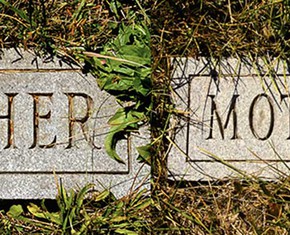The views expressed in our content reflect individual perspectives and do not represent the authoritative views of the Baha'i Faith.
Taoism—the philosophy of life that originated in China two and a half thousand years ago—has some interesting similarities to the Baha’i view of life.
One of the most well-known Taoist conceptions is the notion of yin and yang, the interaction and balance between the passive (yin) and active (yang) forces of existence.
Baha’u’llah wrote that these two very forces provided the means for the birth of creation itself:
The world of existence came into being through the heat generated from the interaction between the active force and that which is its recipient. These two are the same, yet they are different. – Tablets of Baha’u’llah, p. 140.
Interestingly, not only did Baha’u’llah and the Taoist sages explain the same concept; they also employed the same type of logic: paradoxical logic, namely that yin and yang are distinct yet one, a truth that the human intellect finds difficult to grasp.
Another key concept of Taoism, wu wei, literally “non-action,” refers to living in accord with the true nature of reality instead of against it.
In one sense this can be taken to mean “going with the flow.” In the Tao Te Ching, the seminal work of Taoism, Lao-Tzu repeatedly made reference to the humble nature of water, encouraging us to be just as fluid in the way we live:
Highest good is like water. Because water excels in benefiting the myriad creatures without contending with them and settles where none would like to be, it comes close to the way. – Translation by D. C. Lau. p. 64.
A later Taoist, Chuang Tzu, known for his humor and obscure sense of reasoning, told the story of a cook acknowledged for his excellent skill in butchering meat. When asked what the secret was, he explained:
I practice with my mind, not with my eyes … I see the natural lines and my knife slides through the great hollows … using that which is already there to my advantage. Thus, I miss the great sinews and even more so, the great bones. – The Book of Chuang Tzu, translated by M. Palmer. pp. 22, 23.
In this sense, wu wei means “the path of least resistance.” It might seem lazy, but wu wei essentially allows your surroundings to accomplish your own aims. The equivalent of wu wei in the Baha’i worldview represents the act of surrendering one’s actions and allowing God to dictate the outcome:
The station of absolute self-surrender transcendeth, and will ever remain exalted above, every other station.
It behoveth thee to consecrate thyself to the Will of God. – Baha’u’llah, Gleanings from the Writings of Baha’u’llah, p. 337.
Baha’u’llah advised us to use this principle of receptivity and detachment when sharing truth with others:
Consort with all men, O people of Baha, in a spirit of friendliness and fellowship. If ye be aware of a certain truth, if ye possess a jewel, of which others are deprived, share it with them in a language of utmost kindliness and goodwill. If it be accepted, if it fulfill its purpose, your object is attained. If anyone should refuse it, leave him unto himself, and beseech God to guide him. – Baha’u’llah, Epistle to the Son of the Wolf, p. 15.
Here we see that when Baha’is teach others their Faith, they never force their beliefs on others. They share them in a friendly way and let go of attachment to the outcome. In this sense, the equivalent of wu wei in the Baha’i worldview represents the act of surrendering one’s actions and allowing God to dictate the outcome.
But we must also remember that just as in Taoism, Baha’i life has two aspects: the passive and the active. While at times it is wisest to allow things to take their natural course, at other times, we need to step in and actively mold the outcome, especially when dealing with injustice.
For instance, once Abdu’l-Baha hired a carriage so he could escort a government official to lunch. On arrival at their destination, the driver demanded an obviously unfair price. Knowing the price was inflated, Abdul-Baha gave the driver a fair fee, refusing to be unjustly charged. – told by Annamarie Honnold in Vignettes from the Life of Abdu’l-Baha, p. 109.
Life presents all of us with a time to act and a time not to. Sometimes we need to actively solve a problem, be it practical or social; sometimes we need to acquiesce. As it says in the serenity prayer:
God, grant me the serenity
to accept the things I cannot change,
the courage to change the things I can,
and the wisdom to know the difference.
Of course, our lives all have aspects that we need to change. Abuse of any kind–physical, mental, emotional–needs to be stopped. If we lose our job, we don’t sit and wait for someone to call us about a new one; we get out there and do our best to find one. If we have a dream that we want to manifest, we need to actively work towards it. All of these things necessitate an active response.
But at other times, acting or over-reacting might just hinder the accomplishment of our purpose. Despite the marvels of modern medicine, as yet, no cure for the common cold exists. But many people still go to the pharmacy and load up on various chemical concoctions to get rid of a cold. Actually, those “remedies” just take away the symptoms, not the cold itself. Even worse, such drugs make us feel better temporarily, when in fact the underlying disease continues—and so we may over-exert ourselves and make things worse, when what we really need to do is to lay down, do nothing, and let the body heal itself.
Another example relates to education. Many teachers feel a deep obligation to explain everything to their students, to pass on all their knowledge and wisdom. But research shows that students need to be actively engaged in the learning process. This means that teachers need to hand over much of the responsibility to students, as pedagogies such as Montessori and Reggio Emilia suggest. Instead of the teacher directing the students; the students themselves lead the learning process. The teacher knows when, how and whether to intervene in the process, utilizing the students’ interest and motivation to accomplish the overall goal of learning.
At various times in life, we all face a universal reality: the need to surrender, accept our nature and recognize our inability to change everything that needs changing. When life seems to close in around us we feel powerless to do anything about what we cannot control: the death of a loved one, the end of a relationship, a home consumed by a forest fire.
Life, constituted by flux and multiplicity, should also provide our response to what happens in life. We have to continually adapt ourselves to it, responding in the way that best caters to the situation at hand. As the Baha’i teachings advise, we all need to ultimately surrender our own will to the Will of God.
















Comments
Sign in or create an account
Continue with Googleor